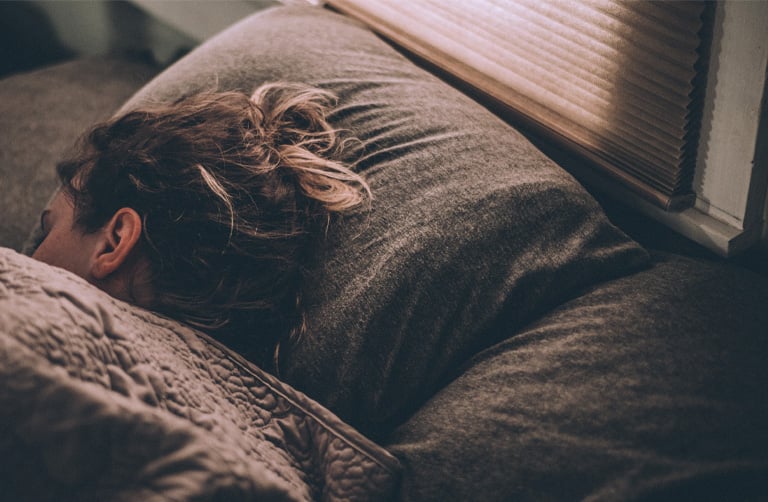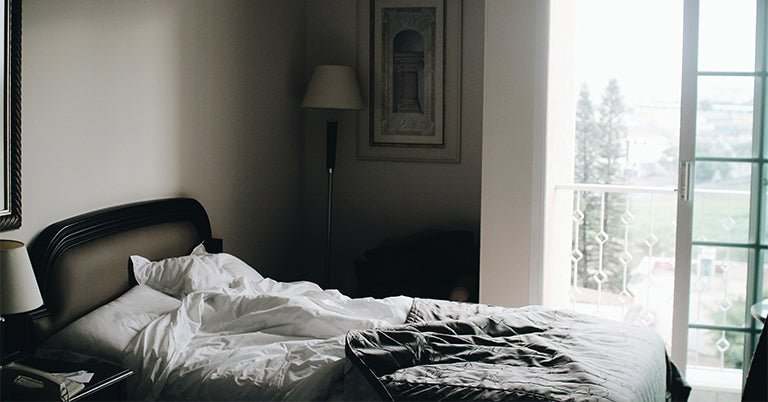Why do we sleep? It may surprise you that there's no bonafide consensus among the scientific community to answer this question. After all, our minds never take a break, even when we're under. The brain consumes almost as much energy when we lay unconscious as it does when we're awake! But nothing is more important to a healthy mind and body than getting a good night's rest.

In fact, studies have suggested that a lack of sleep may be linked to weight gain. This could be for a variety of reasons: the longer you're awake the more calories you consume, hormonal imbalance, too tired to exercise, etc. Any which way you look at it, sleep is a vital key in being able to maintain a healthy weight.
But what exactly is sleep? We spend almost a third of our entire lives on it. Simply put, it's an altered state of consciousness where our bodies inhibit sensory control and most muscle movement. There are two primary types of sleep: non-rapid eye movement and rapid eye movement, which are then divided into four stages of increasing depth.
So how much time do we need to get through the four stages? We've all heard that we need around eight hours a night. That's for adults 18 years or older. It's actually recommended that the average adult sleep 7 or more hours per night. Of course, that's sometimes easier said than done.
If you have a hard time sleeping, remember the tips below:
-
Set your alarm in a multiple of 90 minutes from when you fall asleep. The average sleep cycle the time required to complete all four stages is around 90 minutes. The cycle then repeats. Often, even if you sleep around eight hours, if you wake up in the middle of stage 3, you'll still feel groggy.
-
Be conscious of nap habits and sleeping in. Catching up on sleep is recommended if you need to pay off your sleep debt, but be careful that it doesn't lead to nighttime sleep anxiety or insomnia.
-
Turn off your monitors. While some people say that watching TV or surfing the net helps them to fall asleep, the light a monitor produces is close in color temperature to sunlight, therefore suppressing melatonin production. Melatonin is the hormone that makes you fall asleep and is controlled by light exposure.
-
Avoid fatty foods before bedtime. Fatty foods are a chore for your digestive system and can keep your body more alert than it should be when lying in bed. Try not to eat anything heavy at least two hours before bedtime.
-
Stretch before bedtime. An achy body doesn't do you any favors when you're trying to relax at the end of a long day. Stretch out any sore muscles before hopping under the covers.
-
Eliminate the use of sunglasses in the morning. No, really. As funny as it sounds, letting the sunlight shine on your face in the morning helps your body to regulate your sleep cycle.





Leave a comment
All comments are moderated before being published.
This site is protected by reCAPTCHA and the Google Privacy Policy and Terms of Service apply.